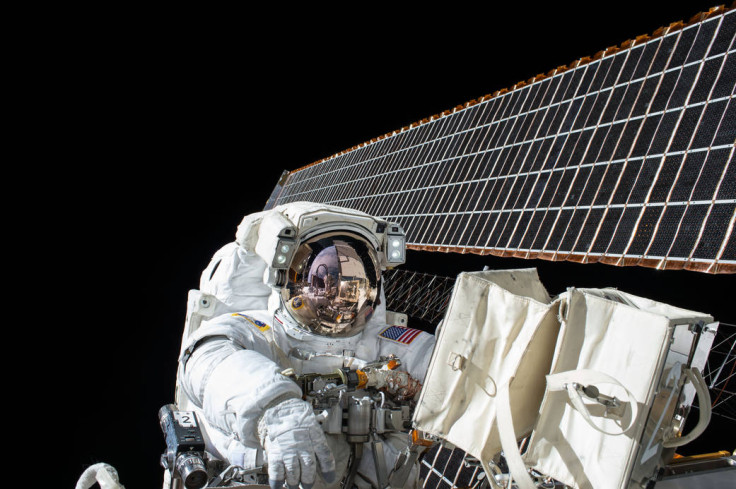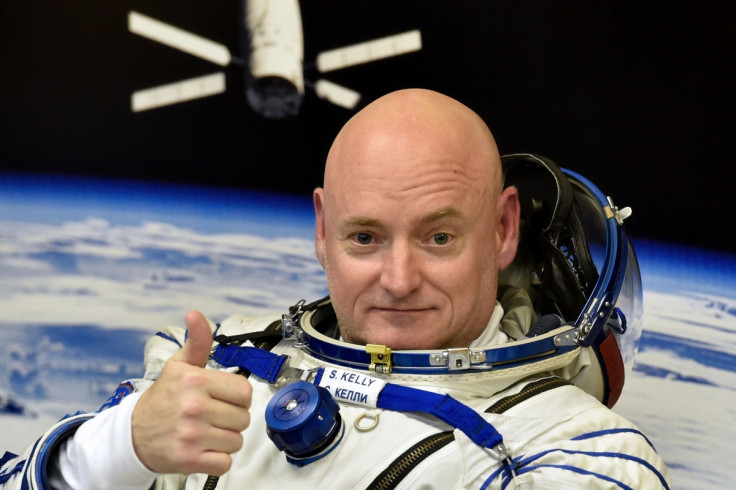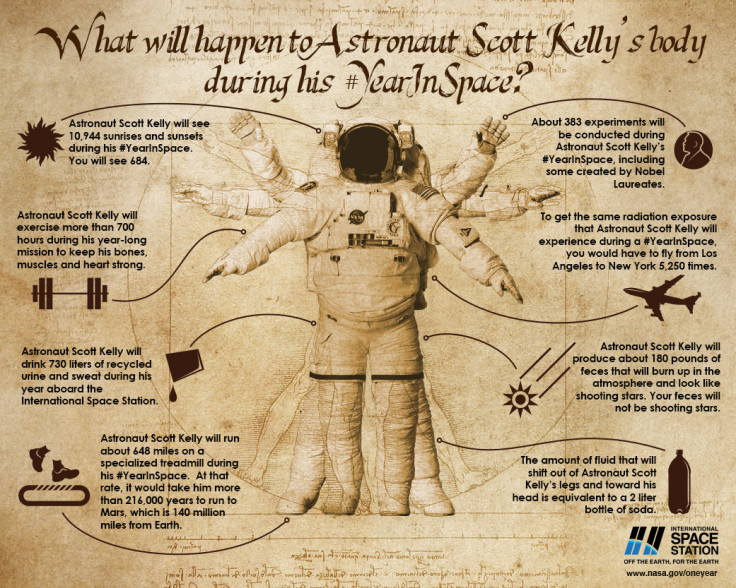Scott Kelly Year in Space: What happens to an astronaut's body while in orbit

Astronaut Scott Kelly returns home on Wednesday 2 March, from his year-long mission on the International Space Station. Kelly's task was to test how the human body reacts to prolonged space travel.
Of course, this was not his first trip into space, so Nasa hopes he is the perfect man to help them understand how the health of astronauts can change in preparation for Mars One – the first manned mission to Mars.
The effect of microgravity in space is very different from the gravity experienced on Earth. As Kelly returns home, IBTimes UK looks at what he could have experienced during his trip.
Grow taller
On Earth, gravity pulls down on our spines, just as it pulls everything towards the ground. Gravity's pull on our vertebrae is one factor which determines our height.
In space gravity is extremely weak, making people effectively weightless. That means the force pulling on our vertebrae is also almost non-existent, so the gaps between the vertebrae begin to spread out.
Nasa astronaut Leland Melvin, who spent more than 565 in orbit during two Space Shuttle missions, has said while in space, he grew an entire inch. "On Earth, I'm 5ft 11in. In space, I grew to six foot."
Weaker muscles
Space flight seems to have a similar effect on muscles as spending a week lying in bed. All of our muscles, including those needed for standing and sitting, lose mass.
Astronauts experience aching muscles – just like passengers on a long-haul flight. Research has found that spending just 110 days in space can reduce muscle strength by 30%.
This muscle loss still occurs when the astronauts maintain a strict exercise routine. Should humans ever live on Mars, we may need to rethink our gym regimes.
Heart
The heart relies on being active. Just like any athlete, the heart needs exercise to maintain its strength.
But because the amount of force needed to pump the blood to our body's extremities in space, as there is less gravity, astronauts' hearts can become weaker and smaller.
Fitness

Our ability to exercise relies on blood being able to deliver fresh oxygen to all parts of the body from the lungs. But as muscles and the heart weaken in space, delivery of oxygen in blood is also affected.
Our lungs add oxygen from the air to our blood, which is then pumped around our body. Our muscles use the oxygen to burn sugars and fats to create the energy it needs to carry out activity.
As the heart becomes weaker in space, it takes longer for individual blood cells to do a full circuit around the body. That means it takes longer for oxygen to be sent to cells.
Research has shown that an astronaut's aerobic capacity – the maximum amount of oxygen you can use during exercise – is reduced by 20%-25% after just 15 days in space.
Eyesight
The change in cranial pressure exerted on eyeballs while in space, can mean some astronauts on the ISS need to wear corrective lenses – even if they do not on Earth – because their eyeballs change shape.
"This affects your vision," said Melvin. "So we keep different prescriptions of glasses on board just in case someone's vision changes."
Bone loss
On Earth, our bones are continuously growing. Two types of cells – osteoclasts (which removes bone cells) and osteoblasts (which create bone cells) – dictate how much bone is made. In a healthy person living on Earth, osteoclasts and osteoblasts' work is co-ordinated. However, microgravity disrupts this process, reducing the amount of bone material that is made.
After 28 weeks in space, can expect a 3.5% loss in bone mass. Most of this is from parts of the body that are used for holding weight – for example, our legs.

© Copyright IBTimes 2025. All rights reserved.






















